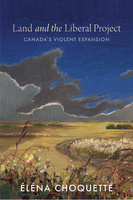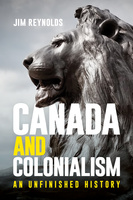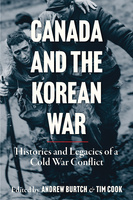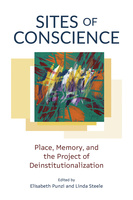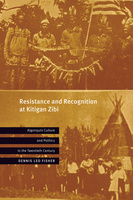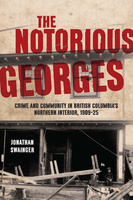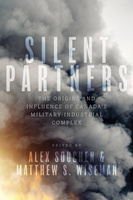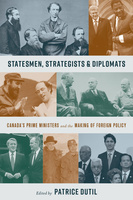Canada’s Prime Ministers and the Shaping of a National Identity
What is Canada? This new look at “Canada” shows how the country’s prime ministers have consciously worked to shape national identity through their speeches and rhetoric.
Building a Special Relationship
Canada-US Relations in the Eisenhower Era, 1953–61
This book takes a compelling look at how bilateral diplomacy in an era wracked by the Cold War created a culture of cooperation between Canada and the United States that endures to the present day.
Discovering Nothing
In Pursuit of an Elusive Northwest Passage
Quests to discover a navigable or usable Northwest Passage ended in failure, but as Discovering Nothing shows, the many attempts to find what nature did not provide led to the construction of its transcontinental equivalent, changing the landscape of North America forever.
Land and the Liberal Project
Canada’s Violent Expansion
Land and the Liberal Project explores the “improving” ideas that informed the expansion of Canada from coast to coast, exposing the justifications for state violence and appropriation of Indigenous territory, thus challenging our assumptions about Canadian sovereignty.
Canada and Colonialism
An Unfinished History
Canada and Colonialism presents the history Canadians must reckon with before decolonization is possible, from the nation’s establishment as a settler colony to the discriminatory legacies still at work in our institutions and culture.
Canada and the Korean War
Histories and Legacies of a Cold War Conflict
Canada and the Korean War synthesizes Canadian and global perspectives on a watershed conflict to explore its profound influence on international, diplomatic, and military history, public memory, and contemporary affairs.
Cape Breton in the Long Twentieth Century
Formations and Legacies of Industrial Capitalism
Sites of Conscience
Place, Memory, and the Project of Deinstitutionalization
Sites of Conscience charts the importance of public engagement with histories, memories, and lived experiences of institutions in forging new directions in social justice with and for disabled people and people experiencing mental distress, in a context where deinstitutionalization has failed to fully recognise, redress, and repair the ongoing impacts of institutions.
Hell’s Not Far Off
Bruce Crawford and the Appalachian Left
Resistance and Recognition at Kitigan Zibi
Algonquin Culture and Politics in the Twentieth Century
Resistance and Recognition at Kitigan Zibi illuminates the traditional values and cultural continuity underlying twentieth-century politics in the largest and oldest Algonquin reserve in Canada.
Boosters and Barkers
Financing Canada’s Involvement in the First World War
“Back him up! Buy Victory Bonds.” Boosters and Barkers examines the unrelenting financial demands of Canadian participation in the First World War, exploring the aims, methods, and implications of securing public support.
The Notorious Georges
Crime and Community in British Columbia's Northern Interior, 1905–25
The Notorious Georges is an engaging exploration of the alchemy of community identity and reputation in Prince George, BC, once branded Canada’s most-dangerous city.
Silent Partners
The Origins and Influence of Canada’s Military-Industrial Complex
Silent Partners delves into the shadowy world of security and national defence to shine a light on the influence they hold in Canadian society.
North of America
Canadians and the American Century, 1945–60
North of America takes a fresh, sharp-eyed look at how Canadians of all stripes reacted to political, economic, and cultural events and influences emanating from postwar America.
Statesmen, Strategists, and Diplomats
Canada’s Prime Ministers and the Making of Foreign Policy
Statesmen, Strategists, and Diplomats is an incisive look at the history of Canadian foreign policy through the actions of prime ministers from Sir John A. Macdonald to Justin Trudeau.




